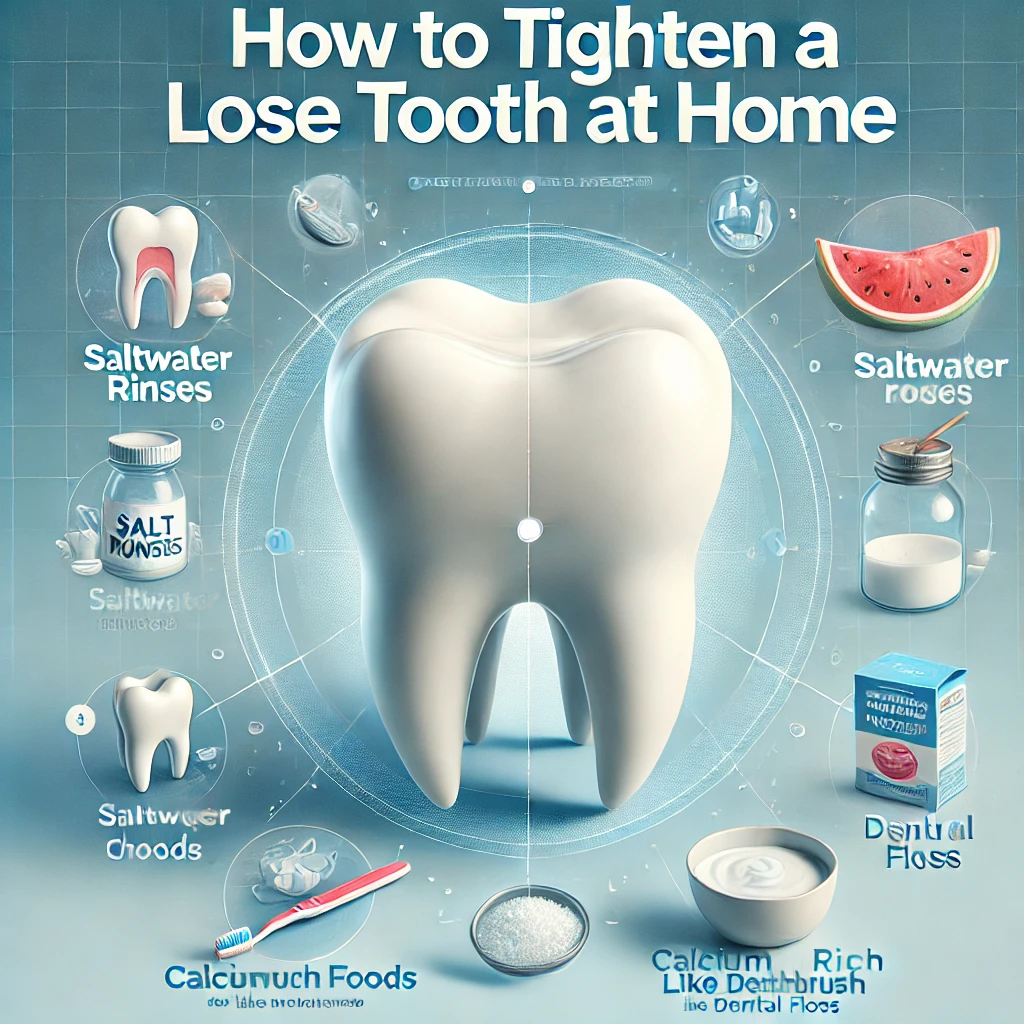Loose teeth usually occur among children as they outgrow their milk teeth to accommodate the permanent ones but in adults, this is an indicator of problems in the mouth. Such indicative signs as the redness of gums, pain, bleeding, their swelling, and recession may signal the presence of such underlying issues as trauma or illness. It is important to obtain emergency dental care, since it may be a chance to save a loose tooth.
Some may just need to be operated on but others can be overcome through non-surgical treatment such as proper oral hygiene and teeth cleaning. If you need more interested info like that visit quick guider.
Part of the question many adults ask is whether they can repair a loose tooth at home or even to supplement treatment by a doctor in a dental clinic. As much as proper oral hygiene care, checkups with a dentist and home remedies might temporarily harden the teeth, they require professional care.
Periodontal disease (PD), which is a leading cause of the loosening of teeth, is present in almost half of all grown-ups more than 30 years of age and may lead to the loss of teeth without treatment. Learning the causes, symptoms, and potential home treatment can help control the condition until one can be taken to the dentist.
Remedies to strengthen loose teeth
To treat loose teeth, the most recommended option would be to consult a doctor, but there are remedies that can help make teeth stronger and protect overall dental health. Proper oral regimen, including brushing twice a day, mouthwash, flossing and following a calcium rich diet are methods of preventing further loosening.
There are several home remedies such as hydrogen peroxide, saltwater gargles, and turmeric with black pepper which will help to deal with bacterial infection and inflammation. Professional treatments such as scaling, root planning and surgery, grafts or dental appliances are mandatory in severe instances and rely on the underlying cause of the problem.
Let’s understand the most common causes of loose teeth.
After the primary reason behind loose tooth development is known, the treatment becomes less of a struggle. It may be caused by gum disease, buildup of plaque, teeth grinding, trauma, poor oral health, osteoporosis and hormonal changes. The tooth can become unstable as a result of periodontal disease, which compromises the bone beneath the tooth as well as by bad habits such as grinding and injuries. Due to other causes resulting in loosening of teeth like osteoporosis and pregnancy due to a change in the hormones, one has to be diagnosed at the earliest and treated appropriately.
How do I know when a loose tooth is beyond saving?
In the event that a loose tooth cannot be salvaged because of extensive gum disease, traumatic injury, or fracture of the tooth beneath the gumline, a dentist may suggest the extraction of that tooth and a bridge or implant to replace it. Loss of bone due to severe gum disease is irreversible and injury/fracture of teeth may render the tooth unsavable.
There is also the chance of major bone reduction or/and infections, which would require tooth extraction when other methods fail to work. Seeking the opinion of a dentist is essential, to properly assess the situation and work out the most suitable course of action.
What are the most common causes of loose teeth?
It is important to know the primary reason behind the loosening of a tooth to treat it effectively as it can be caused by gum disease, plaque build-up, teeth grinding, traumas, inadequate oral hygiene, osteoporosis, and hormonal changes. Good oral hygiene, good diet with high portion of calcium, and other remedies such as hydrogen peroxide, salt water gargle and turmeric or turmeric along with black pepper can help strengthen the teeth.
Dental health can also be promoted by the prevention of the enamel erosion, which is achieved by avoiding the intake of acidic drinks, maintaining proper levels of hydration, and employing fluoride toothpaste. Periodontal disease, trauma, teeth grinding, and osteoporosis are the most widespread causes of loose adult teeth and all of them have to be professionally diagnosed and treated.
Conclusion
Misplaced teeth in the adult population may be the symptom of some hidden dental problems, including gum disease, trauma, or osteoporosis, which should be addressed. Good oral hygiene and home-made remedies can only strengthen the teeth in the short term; they will require professional care to achieve a lasting result.
In extreme cases i.e. when the tooth is beyond salvaging as it has been lost due to bone loss or structural damage extraction and replacement may be required. Knowing the causes, symptoms and treatment methods could help prevent their further development and preserve the overall dental-health. If you need info related How to ship a water.
FAQS
How can I tighten my loose teeth naturally?
You can try natural remedies like maintaining good oral hygiene, eating calcium-rich foods, and using saltwater rinses to keep your gums healthy. Avoid grinding your teeth and practice good dental care to prevent further loosening.
Can you make a loose tooth tight again?
If the tooth is only slightly loose, improving oral hygiene and using home remedies like saltwater rinses may help. However, if the tooth is very loose, you should see a dentist for proper treatment.
Can salt water fix a loose tooth?
Salt water can help reduce bacteria and strengthen gums, which may support a loose tooth. However, it cannot fully fix a loose tooth, so dental treatment may still be needed.
How to stop teeth from moving naturally?
To keep your teeth from moving, practice good oral hygiene, avoid grinding your teeth, and eat a balanced diet with enough calcium. Wearing a nightguard and visiting your dentist regularly can also help prevent tooth movement.
